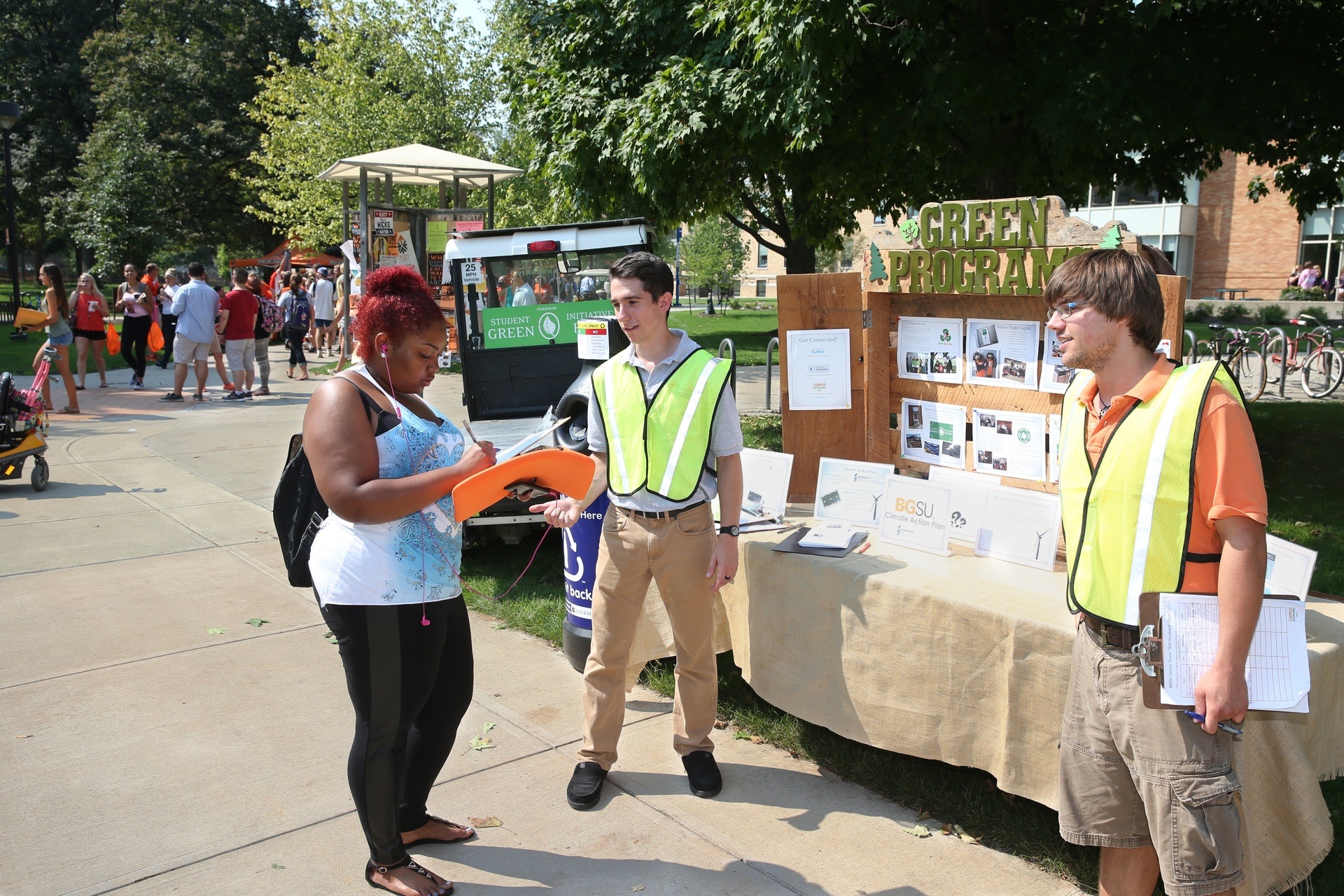
Bachelor of Arts (B.A.)
Minor
Environmental Policy and Analysis
Environmental Policy and Analysis is available for students with a commitment to improving environmental quality through changing human behavior. Students in the major gain a scientific understanding of major environmental issues, but the focus of their coursework is on acquiring the necessary skills and tools to develop solutions to these problems with an emphasis on the role of the social sciences.Majors learn about strategies ranging from education to policy to community engagement to regulation. Each student selects a specialization keyed to individual career goals.
Quality classroom experiences
Students majoring in Environmental Policy and Analysis acquire a sound understanding of the scientific causes of environmental problems as well as the motivating factors underlying human behavior. They take course work focusing in the social sciences, including history, geography, economics, and political science and law, as well as fundamental courses in the natural sciences. Each student identifies a specialization related to their career goals. The specializations include: sustainable management, environmental education and interpretation, restoration, environmental law, and international perspectives. A capstone course and internship well prepare each graduate to work as part of an interdisciplinary team contributing to finding practical solutions to complex environmental programs. Service learning is an important part of the curriculum. Field experiences and study abroad are encouraged.
The capstone Environmental Impact Statement course gives all students experience in researching and developing real documents required by law.
Career - what can you do with an environmental policy and analysis degree?
Opportunities for environmental policy and analysis graduates are varied and numerous. Most universities have sustainability offices to lead those institutions in meeting the needs of the future. Many industries need our graduates, to move forward in developing sustainable business practices, and to help them meet environmental regulatory challenges. The government, from the local level to federal, provides many opportunities for our graduates working as program administrators, policy analysts, planners, and managers. In addition, many of our graduates work for nonprofits often at the grassroots level promoting community empowerment and change. Many of our graduates have jobs that enable them to work in nature as well as behind a desk. Examples of the type of opportunities available include work in outdoor recreation, geospatial analysis, community engagement, event planning, and design and conservation of natural areas and preserves. Increasing recognition of the need to reuse and recycle resources has led to increased opportunities in solid waste management and pollution prevention.
Teachers are needed for nature centers, travel and adventure programs. The need to develop sustainable practices has emerged as a ubiquitous societal need, offering new and exciting career opportunities. Students often use the policy and analysis program as preparation for continued academic work leading to graduate degrees in law, planning or public administration.
Career paths
- Naturalist in a park system
- Environmental Educator
- Director, environmental nonprofit
- Stewardship Manager
- Sustainability coordinator in a large company or a university
- Environmental specialist at OhioEPA
- Graduate school to become an environmental lawyer or urban planner
Quick Facts from the Bureau of Labor Statistics
Valuable opportunities are available through a required independent study or internship. An internship coordinator assists students in locating rewarding experiences.
Curriculum
The Environmental Policy and Analysis major is broadly interdisciplinary, requiring courses in natural science, social science and the humanities. It is located in the School of Earth, Environment and Society (SEES). Students take a course in biology and two other science courses, economics, political science, environmental studies, law, technical writing, and statistics. Flexibility in the requirements encourages students to concentrate on individual interest areas. Each student selects a specialization: Sustainable Management, Restoration, Environmental Education & Interpretation, Environmental Law or International Perspectives to prepare for specific careers.

Sample courses
- Field & Laboratory Methods
- Geospatial Science
- Environmental Law
Collegiate Admissions Information
Completing the requirements for high school graduation is necessary for admission to BGSU, but only finishing the minimum coursework will leave you unprepared for college. Consider taking four years of mathematics instead of the three that are required. Two, three or even four years of the same foreign language is excellent for preparation for college. You will also benefit from competency in computer use.
The Environmental Policy and Analysis program is part of the Department of the Environment and Sustainability in the BGSU College of Arts and Sciences.
Accreditation
Bowling Green State University [BGSU] is accredited by the Higher Learning Commission. BGSU has been accredited by the Higher Learning Commission since 01/01/1916. The most recent reaffirmation of accreditation was received in 2022-2023, with our next reaffirmation of accreditation scheduled for 2032-2033. Questions should be directed to the Office of Institutional Effectiveness.
Request Information
Updated: 08/07/2024 03:24PM

